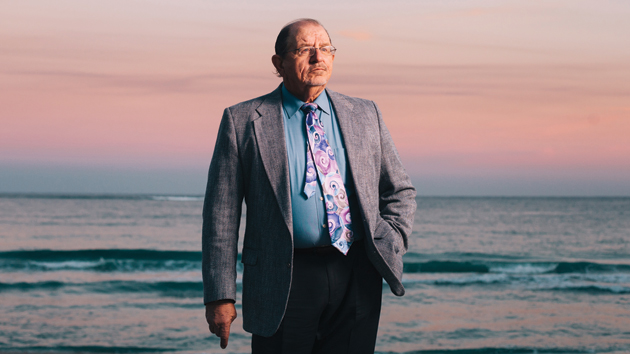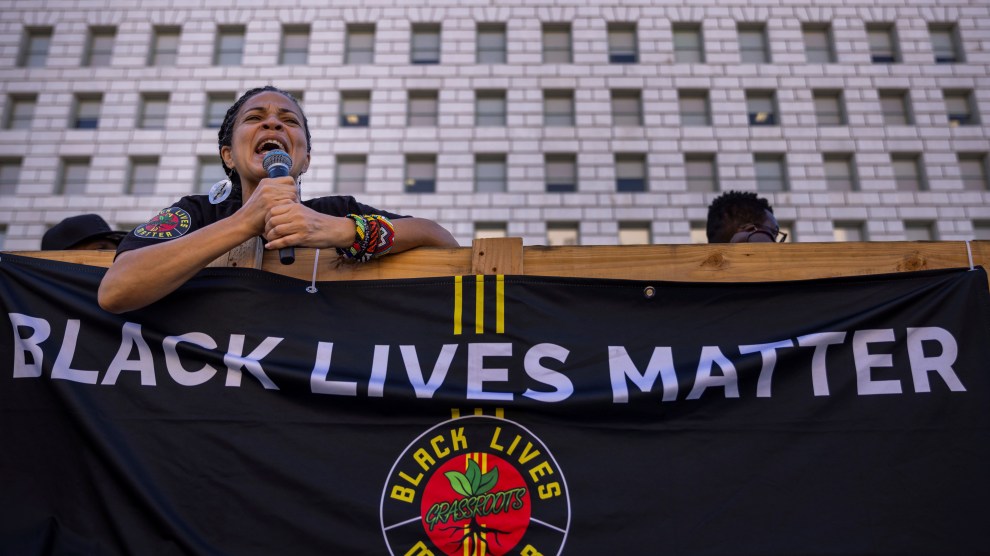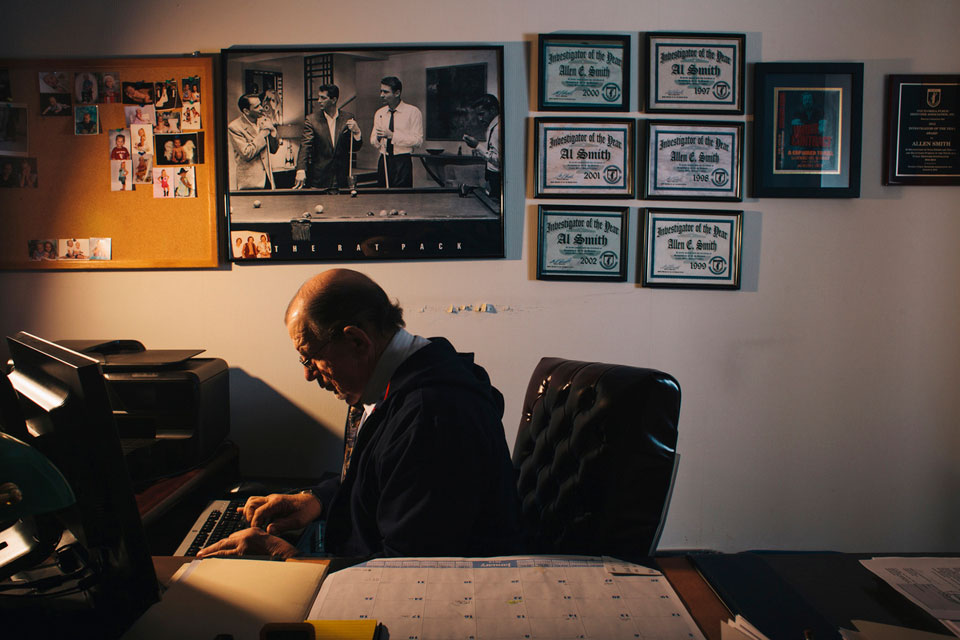
I spent a week with the investigators in Broward County, Florida’s public defender’s office. I wish I could have spent a year.
One night I took a drive through Fort Lauderdale with Al Smith, the lead investigator and a former cop who spent much of his police career posing as a hit man with the Fort Lauderdale Police Department’s Organized Crime Unit. Smith took me on a “shootout” tour of the city. He showed me the parking lot where, decades ago, an undercover operation erupted in gunfire with a group of corrupt Teamsters from Boston. We drove by a bar where a woman tried to hire Smith to kill her husband. We drove to a public park on the beach where Smith cut a date short with his then-girlfriend, now-wife, to partake in a gunfight with a group of armed robbers who’d cut the fingers off an elderly lady to remove her jewelry during a home invasion. “They did not survive the encounter,” Smith said.
In addition to photographing Smith on the beach near the scene of a shootout, I shot him sitting in his SUV on top of the parking garage with the cityscape in the background, because that’s where I imagined I would go to meet a hit man if I were ever to hire one.
The big challenge in photographing the investigators came with matching their portraits to the drama of their backstories. Most of them are former cops with stories equally impressive to Smith’s. Investigative work is about being thorough—interviewing, verifying witness testimony, making phone calls, crunching data. It’s fascinating, but not always the sort of activities that translates in photography. So how do you photograph a résumé?
I photographed Phil Arth, a former cop who is an expert in interrogation, in what I imagined an interrogation room looks like: single, overhead light, with Phil confident in his chair, eyes hidden. I must have read too many comic books; Phil later told me that interrogation rooms are generally well lit to set people at ease. I photographed Mark Furdon, a former cop who worked in surveillance, outside by security cameras. Joel Manney told me a story about working in Colombia with the DEA. I imagined him as a secret agent, and photographed him as such.
And when it came to photographing Howard Finklestein, the public defender who helped orchestrate the dream team of former “supercops,” I wanted to communicate his brilliance, energy, and irreverence. I loved how expressive he was. While his office boasted wall-to-wall awards, accomplishments, and certificates, I wanted to focus on him as a character. So I put him in a chair in a conference room and turned him loose.
Here are more photos from my time with the Broward County investigators:
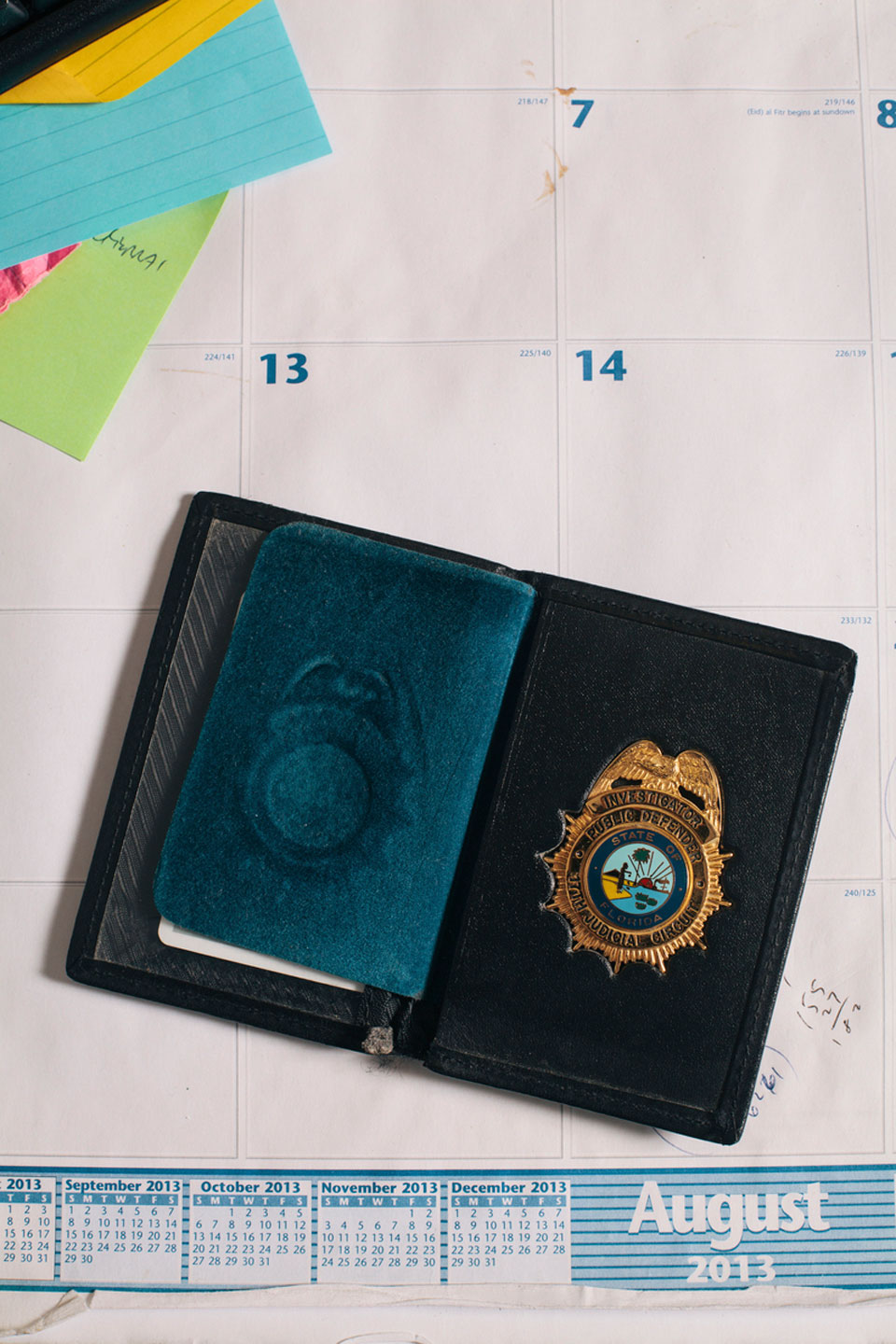
Investigator’s badge for the Broward County Public Defender’s Office
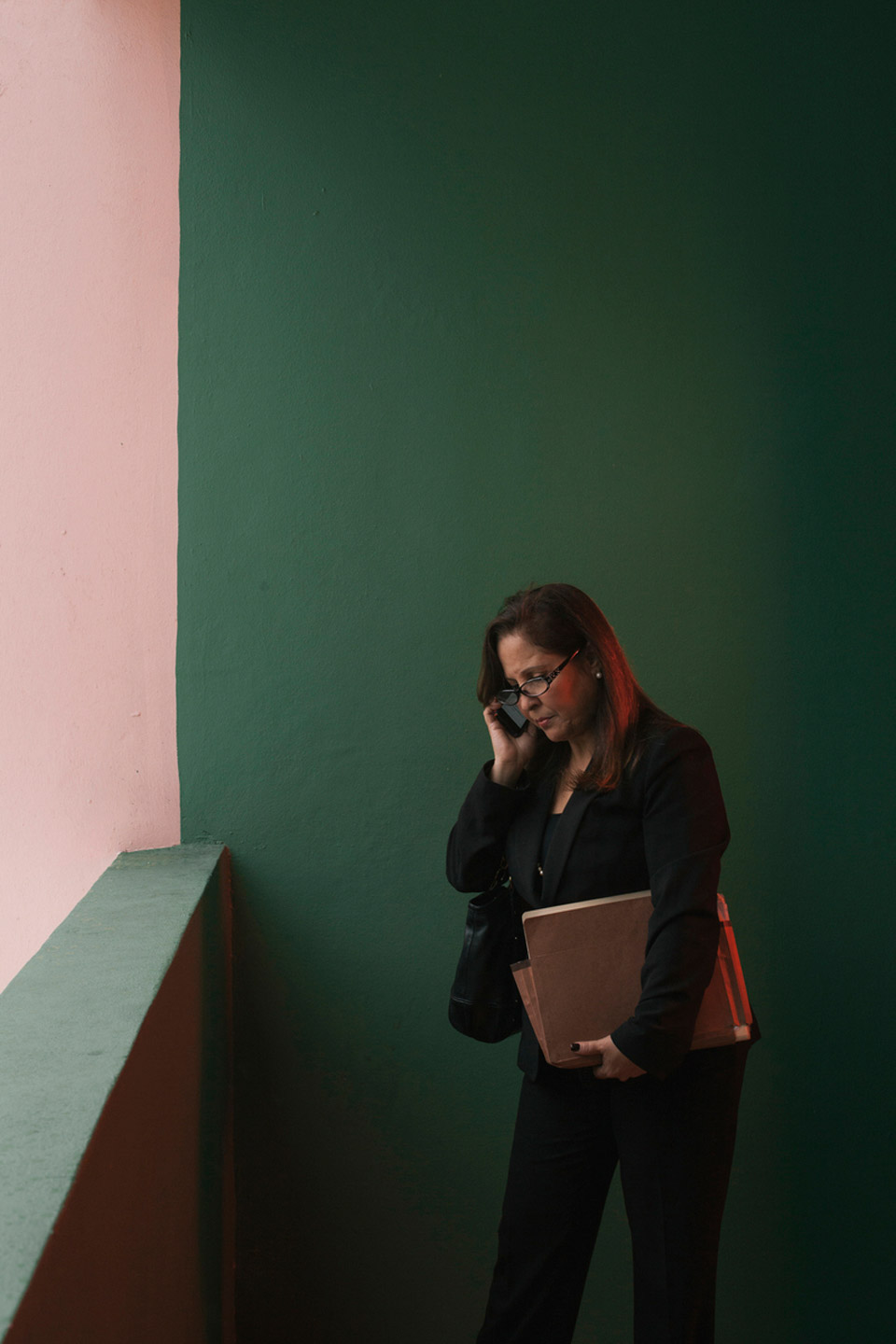
Investigator Emma Lolus is a former counselor at a methadone clinic and counselor at a residential drug treatment clinic.
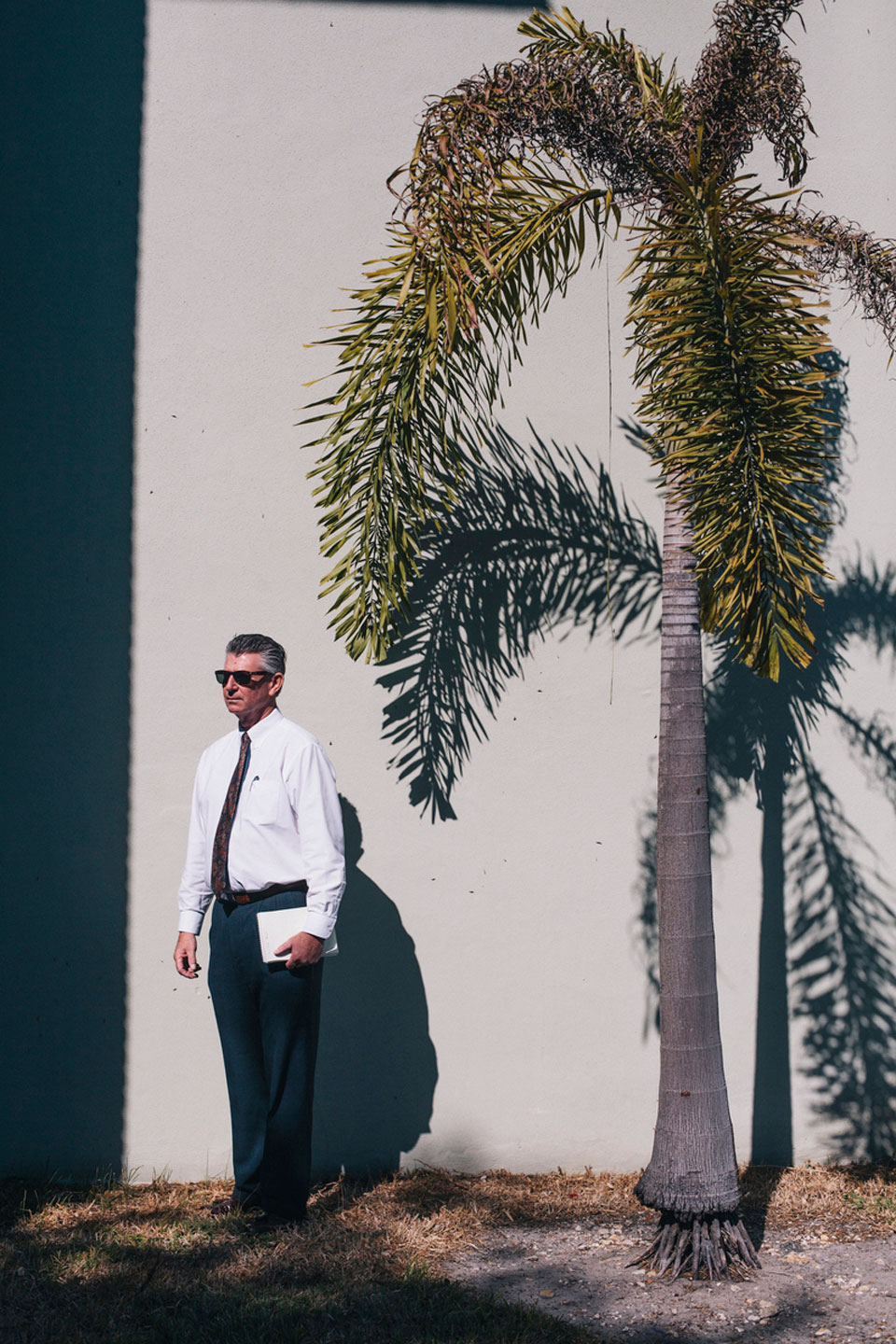
Investigator Joel Maney worked 25-plus years for the Fort Lauderdale Police Department, where he started in patrol and later worked in the narcotics unit, the vice squad, and as a detective in the nuisance abatement division. After he retired in 2009, Maney started his second career with the Broward County Public Defender’s Office, where he has been for the past three years. He said he has a “gift of gab,” which helps him talk his way into, or out of, most situations.
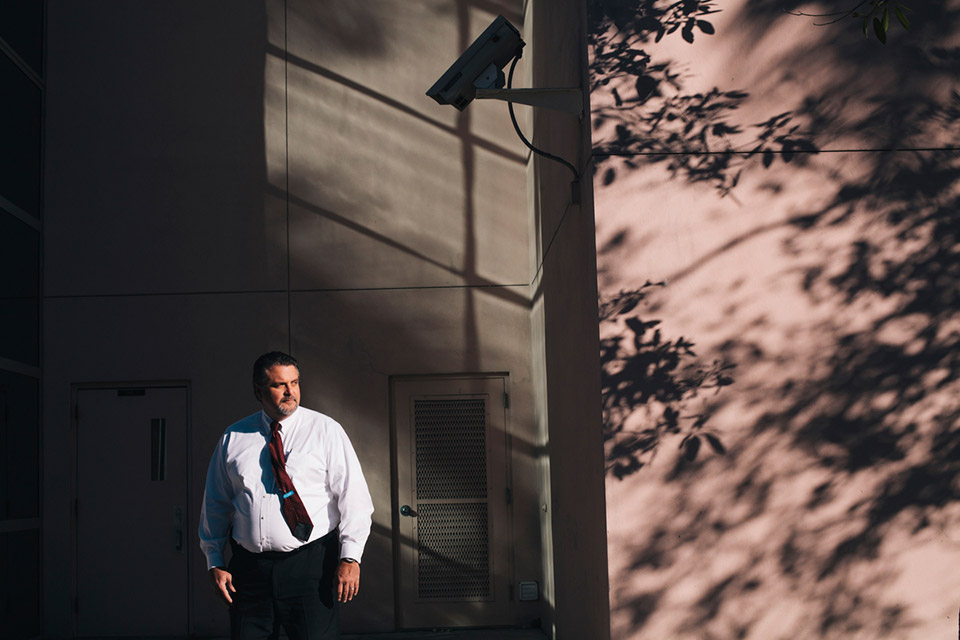
Investigator Mark Furdon spent 24 years working for the Fort Lauderdale Police Department before retiring and starting with Broward County Public Defender’s Office, where he’s worked for 8 years. With the FLPD, Furdon worked in a number of units—patrol, pursuit driver training, the juvenile gang unit, the general duty night shift with then-partner and now-colleague Phil Arth, the marine unit, the bomb team and dive rescue team, and as a technical support sergeant who oversaw all audio/visual surveillance for the police department.
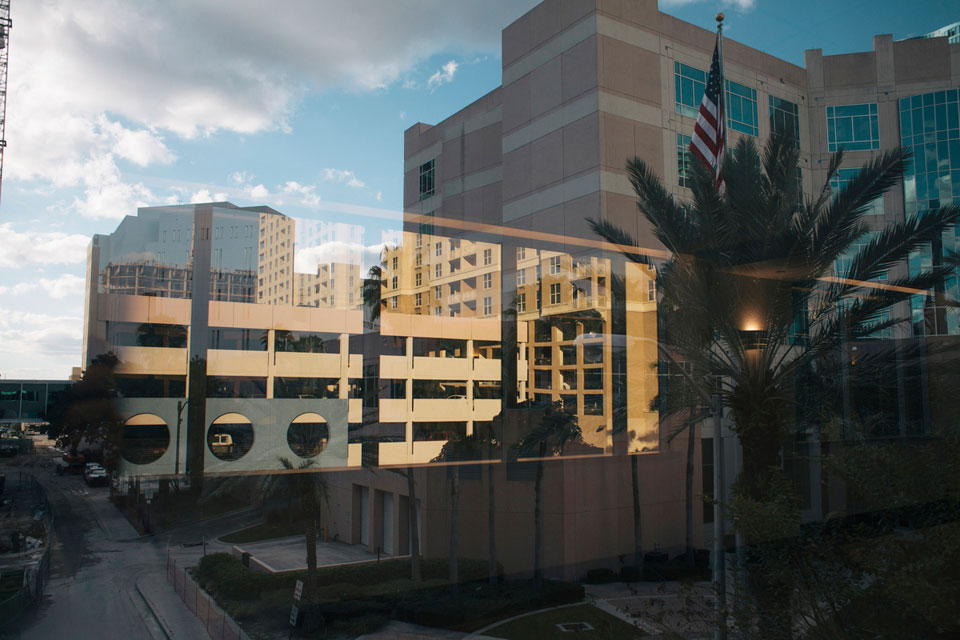
Third-floor window view of the Broward County Courthouse, home of the public defender’s office
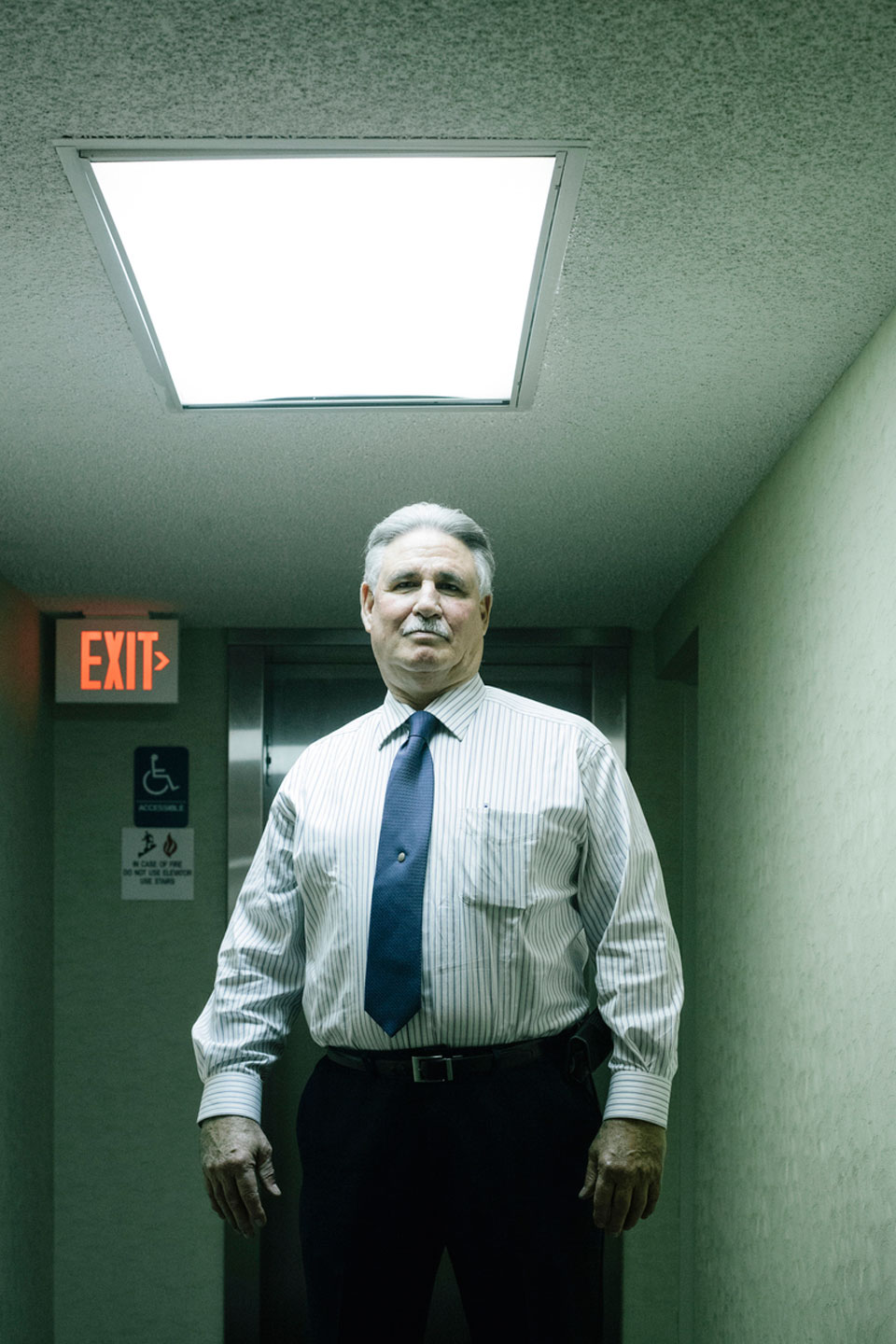
Investigator Ronald Reffett used to be the district chief of the Broward County Sheriff’s Office and the chief of police for Deerfield Beach and Ocoee, Florida.
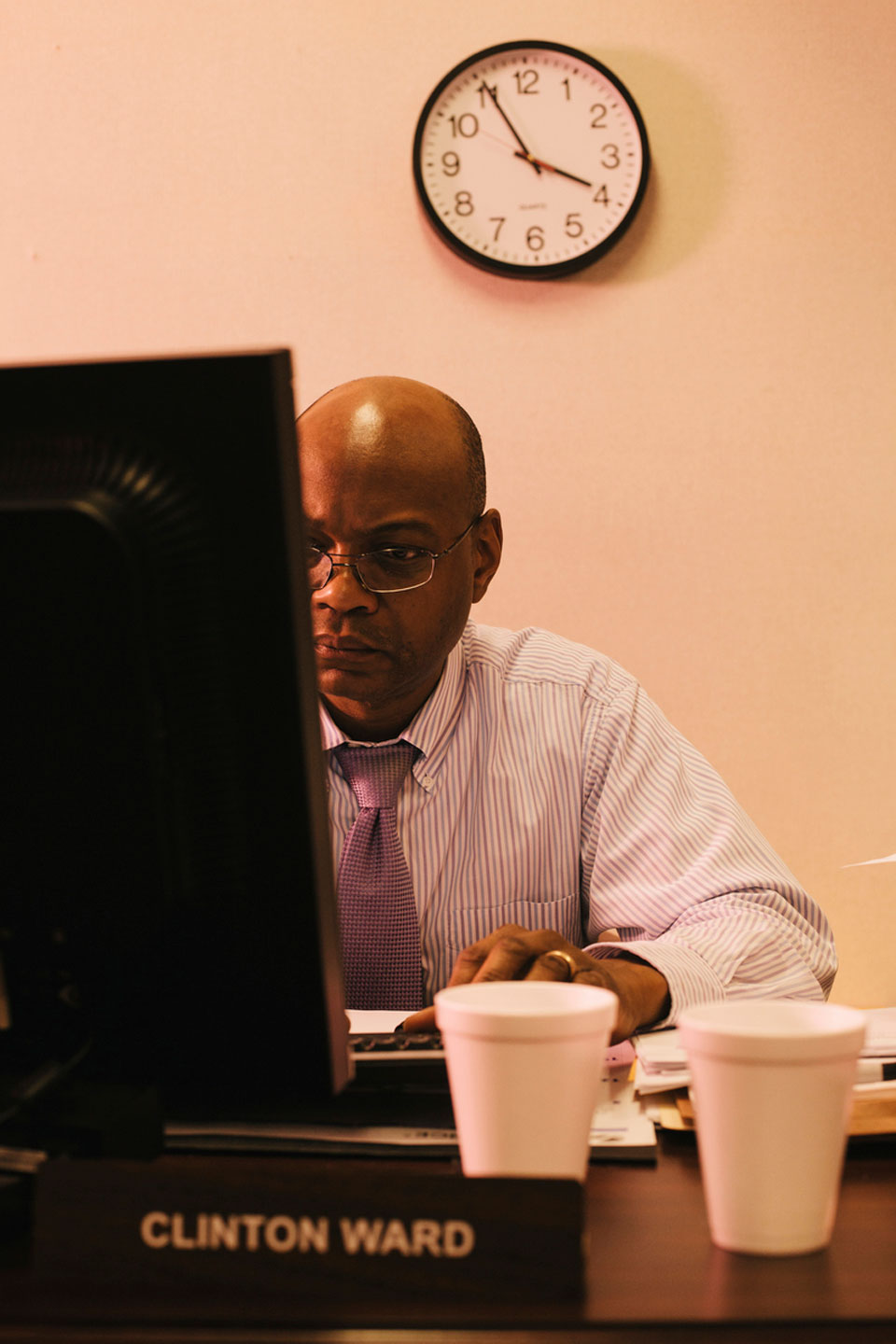
Investigator Clinton Ward is a 19-year veteran of the Fort Lauderdale Police Department. Ward worked patrol, tactical patrol/SWAT, undercover in the drug unit, fraud in the economic crime unit, and served as public information officer. He took a family vacation nine years ago to Sanibel Island, returned to the office, and didn’t want to go inside. So he retired, and two weeks later took a job with the Broward County Public Defender’s Office, where he still works nine years later. “I have no regrets,” Ward said.
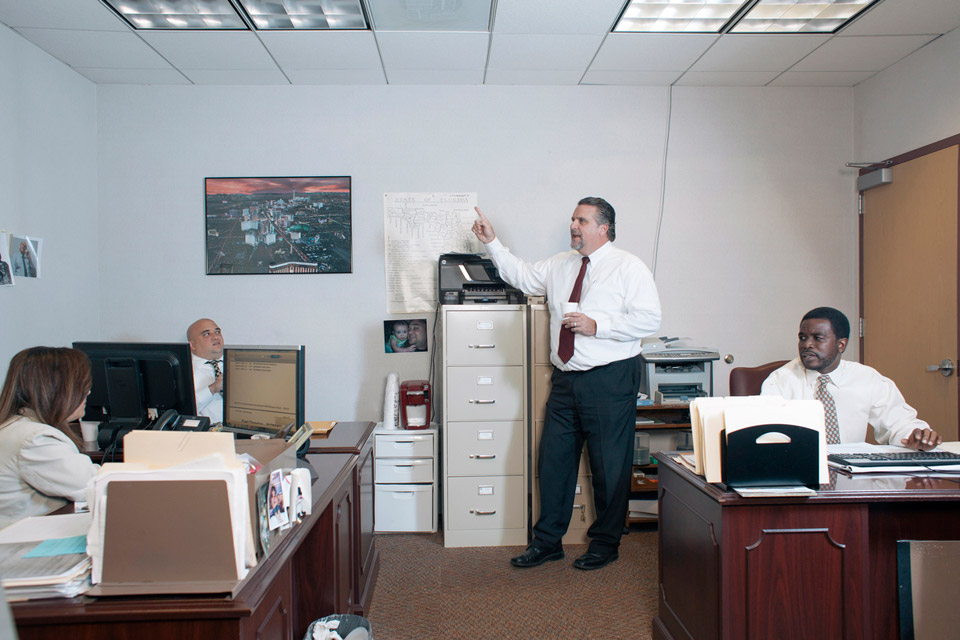
From left, investigators Emma Lolus, Bobby Bazan, Mark Furdon, and Rodrick McGowan
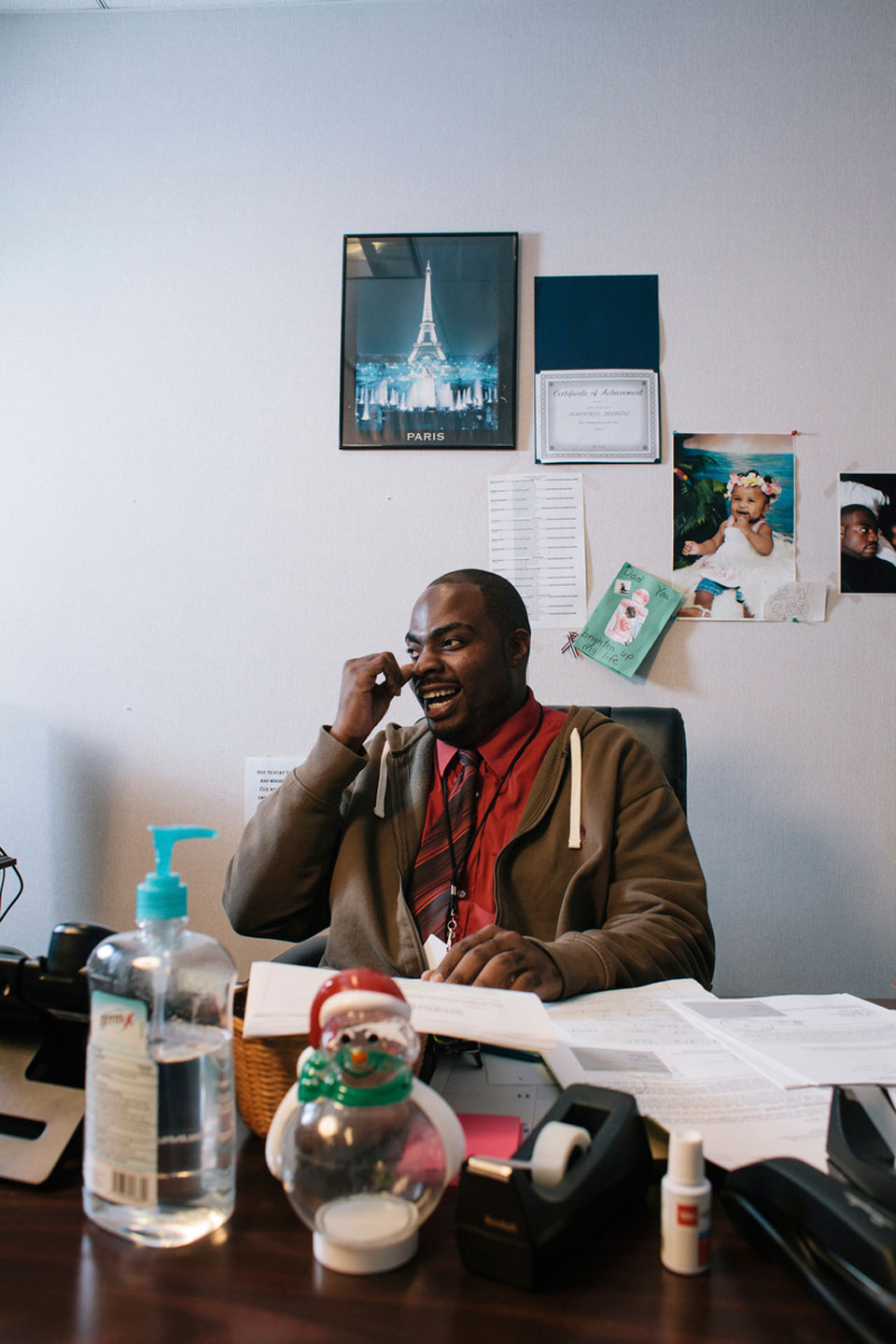
Dominique Dormeus worked as a clerk for the Broward County Public Defender’s Office for five years before moving up to investigator.
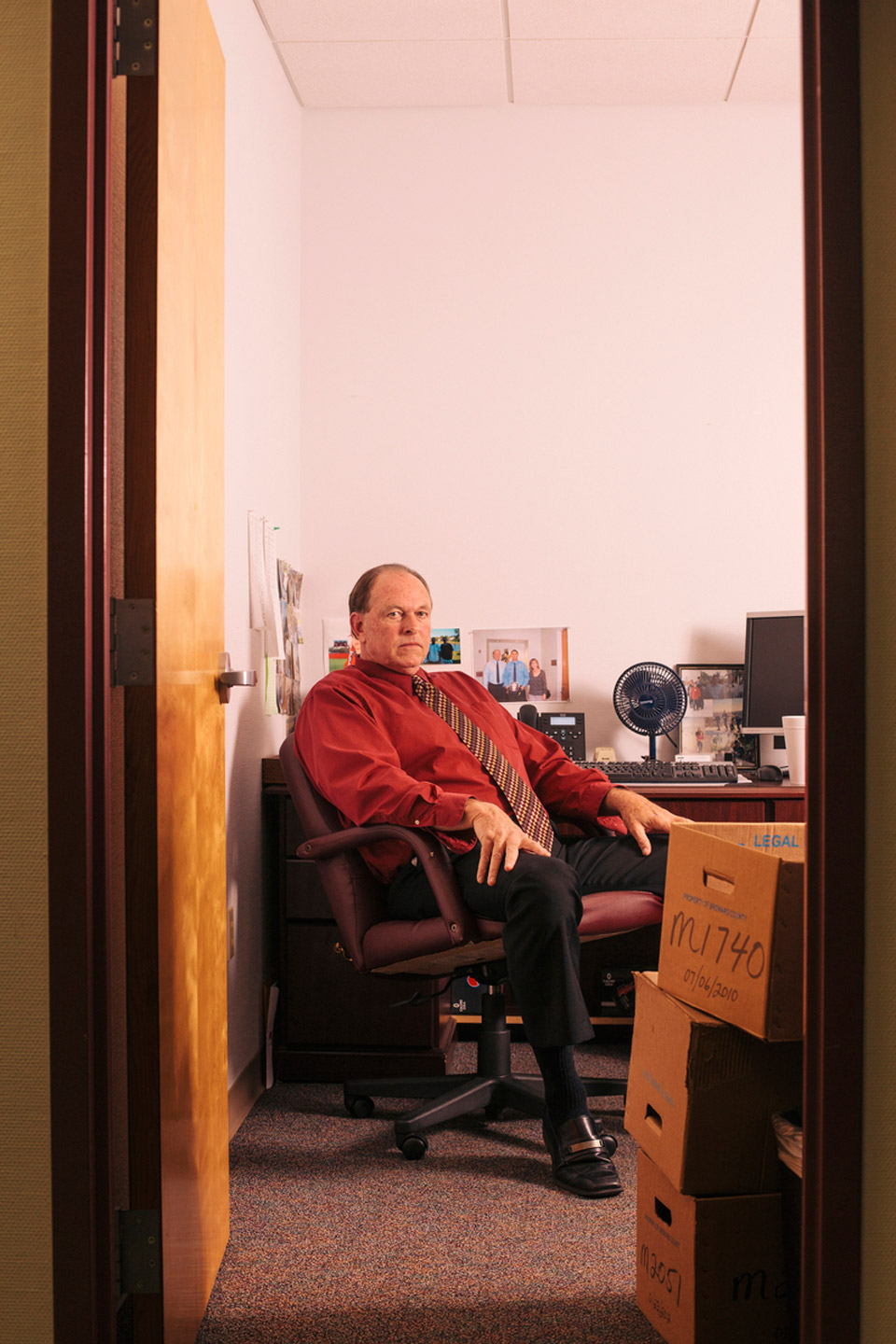
Bill Walker spent 36 years on the police force with the Oakland Park Police Department and the Fort Lauderdale Police Department. During his 24 years with the FLPD, Walker worked in the organized-crime division. Walker recently left his job as an investigator for the Broward County Public Defender’s Office to take a post in the State’s Attorney’s Office.
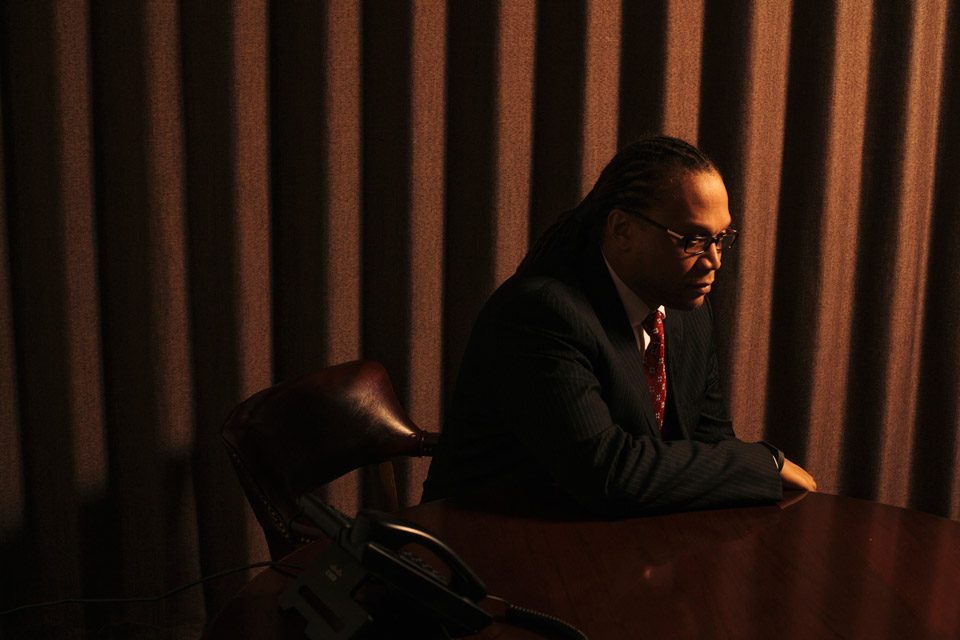
Gordon Weekes, assistant public defender, Broward County
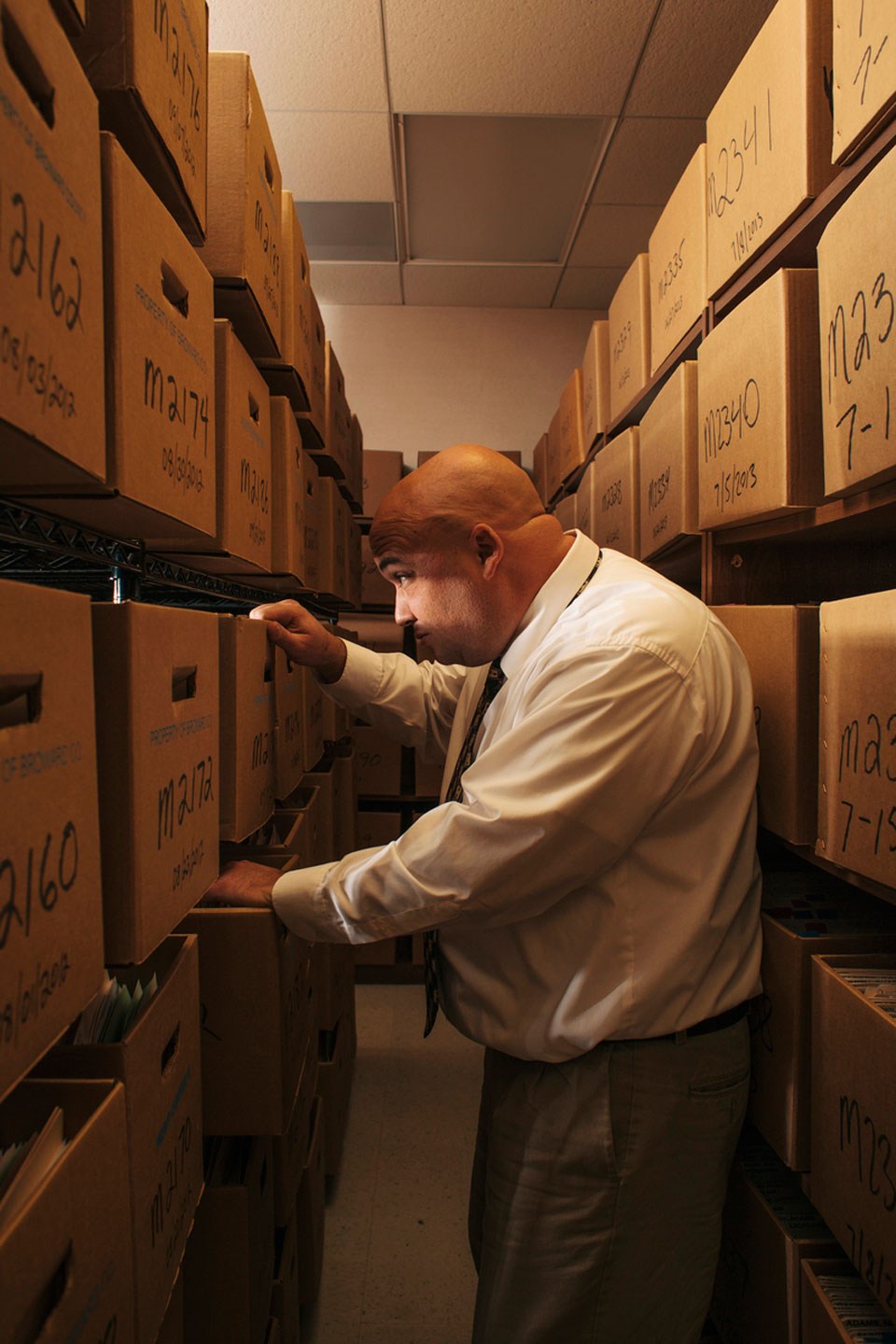
Investigator Bobby Bazan started as a court clerk at age 19. He has worked for the Broward County Public Defender’s Office for the last 17 years.
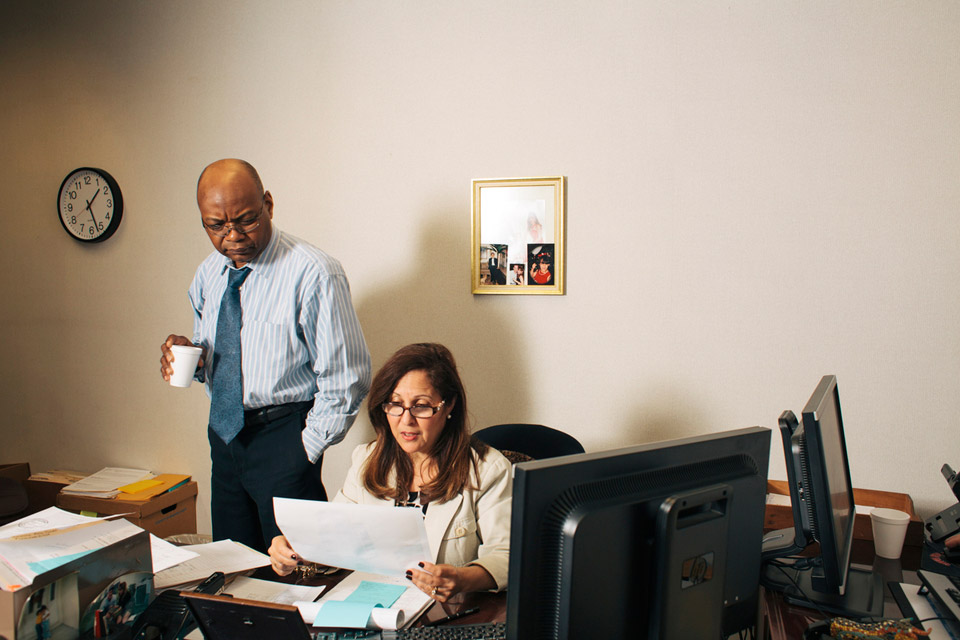
Clint Ward, left, and Emma Lolus, both investigators for the Broward County Public Defender’s Office
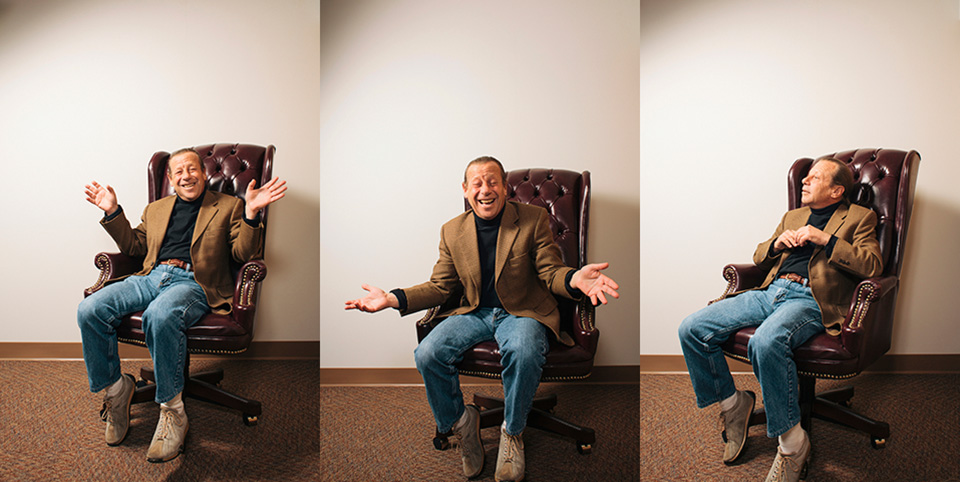
Howard Finkelstein, Broward County public defender
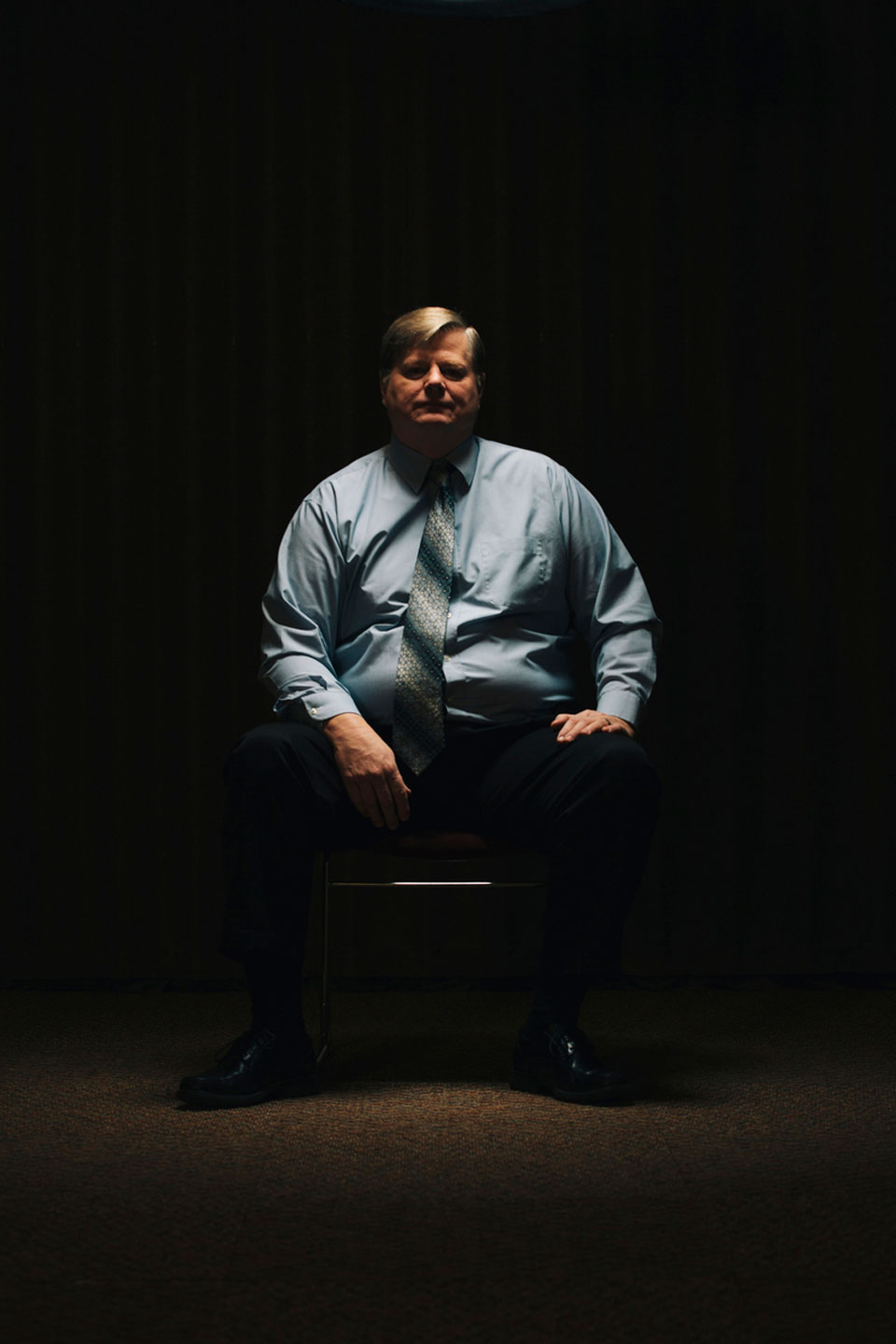
Investigator Phil Arth is a 25-year veteran of the Fort Lauderdale Police Department and is an expert in interviewing and interrogations.
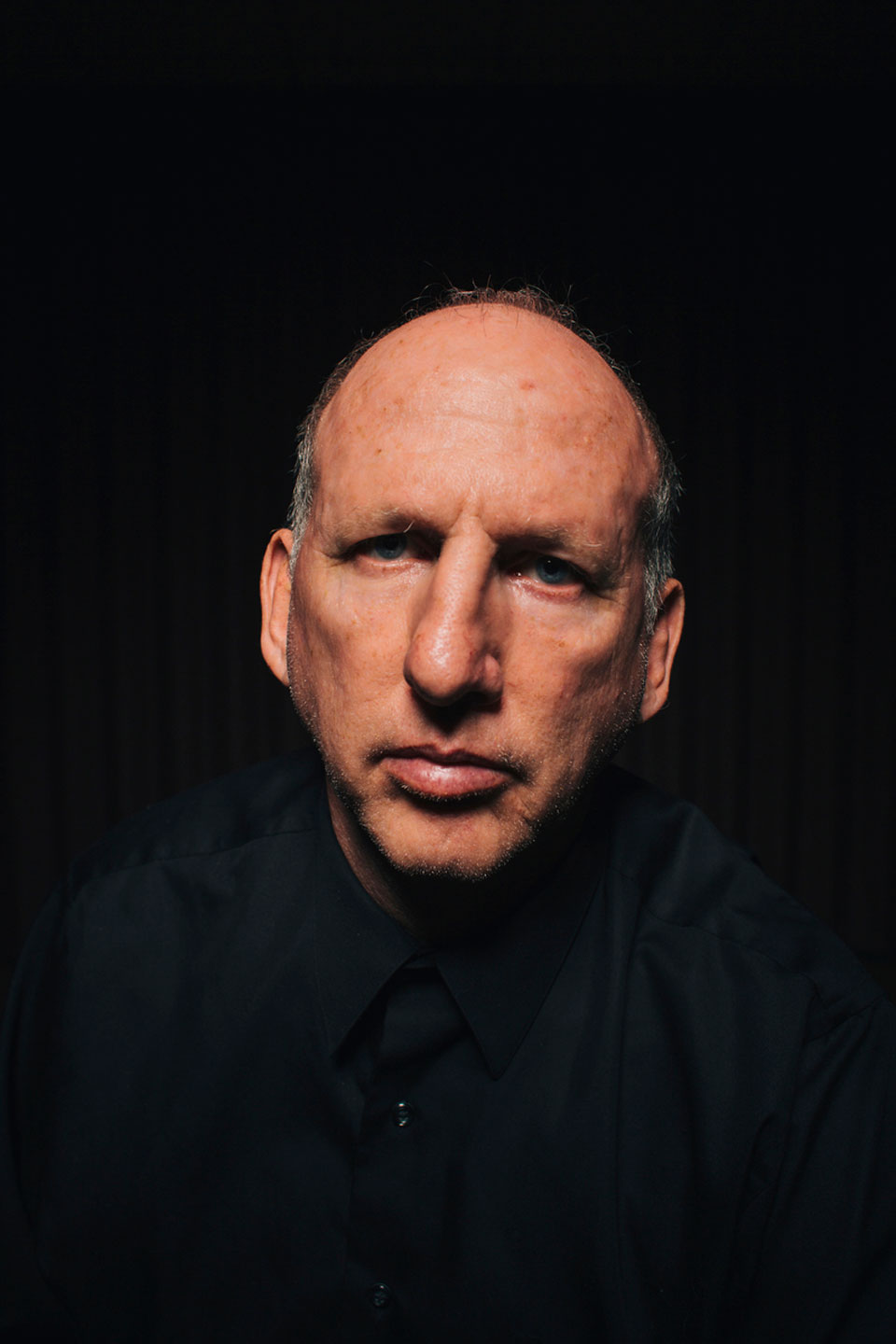
Investigator Charles Stack is a 28-year veteran of the Fort Lauderdale Police Department, where he was a member of the tactical input/SWAT unit and worked in the organized-crime and narcotics divisions. Stack is also a martial-arts expert, a former national champion in karate and former member of US National Savate Team.
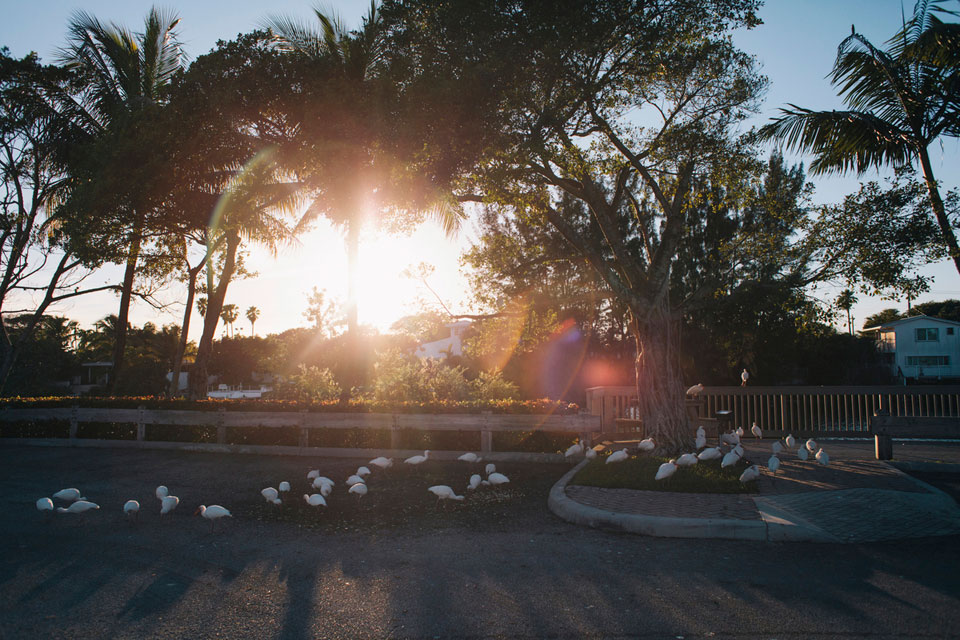
Parking lot and scene of the shootout Al Smith had with a group of corrupt Teamsters in downtown Fort Lauderdale
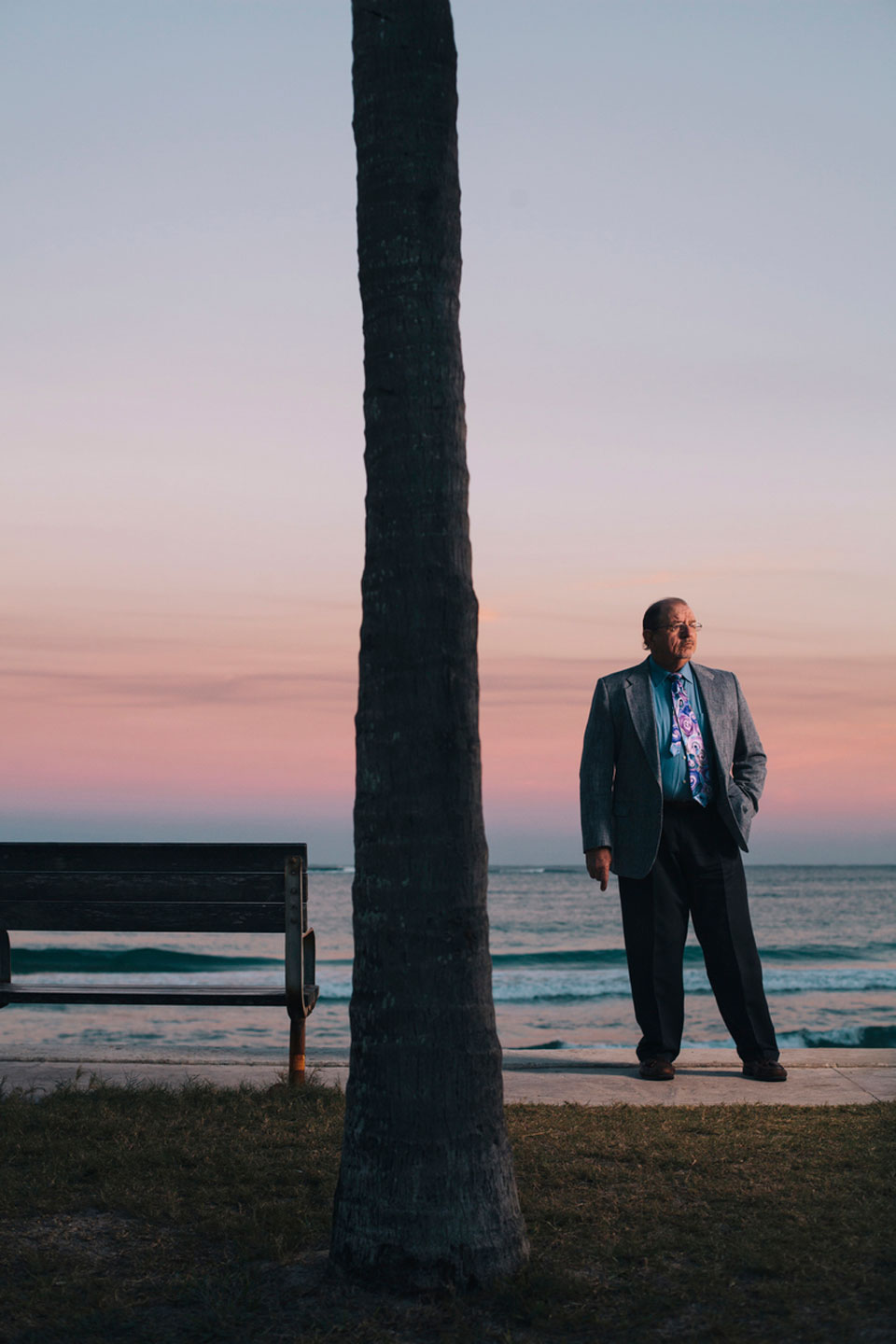
Investigator Al Smith
